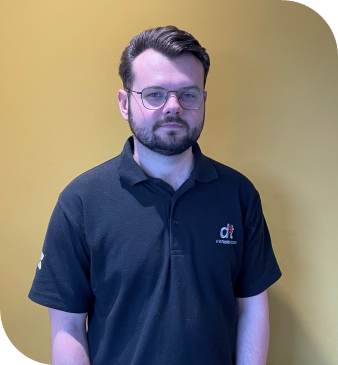Spotlight: Tom Walters, Graduate Programmer
19th Oct 2023

How did you get your job at d3t?
During my second year at university, d3t visited for a careers fair and did a presentation about their studio, with advice on how to get into the industry, along with advertising roles for internships and graduate jobs. I was really impressed with the variety and type of work that d3t do, along with the portfolio of impressive projects they had worked on – it sounded like the ideal role for me. I spoke with them, handed them my CV, and connected with them on LinkedIn afterwards.
Although I ended up doing my placement year elsewhere, I had not forgotten about d3t and applied again for a Graduate role after returning and completing my studies. I was excited to see them again!
What do you do day-to-day?
My day always starts with a brew, saying good mornings, and a quick stand-up meeting which gives us a chance to synchronise with each other, so we know what we’re all up to and it’s a good chance to get some help on anything if I’m stuck. I like to work hybridly from home and at the office depending on whatever suits me at the time. Fortunately d3t are very flexible with this and it’s one of my favourite aspects of the company!
For the rest of the day, I’ll be working on whatever my current task(s) are, which involves writing and reading code, communicating with my team what it is I’m doing and whatever help I may need, investigating bugs, writing documentation for research and investigation, checking code reviews, and so on.
Do you have any tips for people looking to get into the games industry?
Without a doubt, the best way to stand out is to create a portfolio! It’s fairly cheap and easy these days to host a personal portfolio website using WordPress or something similar, and it is definitely worth your time to learn how to make one. Websites like GitHub/ArtStation are great places to make your work public too.
Personal projects really stand out, but university projects alone will suffice if you don’t have any. The key is in detail – explain what you have made and how the things you’ve made work. If you’re a Programmer, programmers will be looking at your projects and will be interested how you solved problems and implemented features. If you’re an Artist, artists will want to know your workflow and what tools you used, etc.
And last of all, have passion for games and making them! It’s an industry full of people who love doing it, and if you want to be part of it, passion will go a long way.
We are hiring
Stay tuned for more spotlight features coming soon. In the meantime, if you’re feeling inspired and want to join our team, check out our vacancies page!

